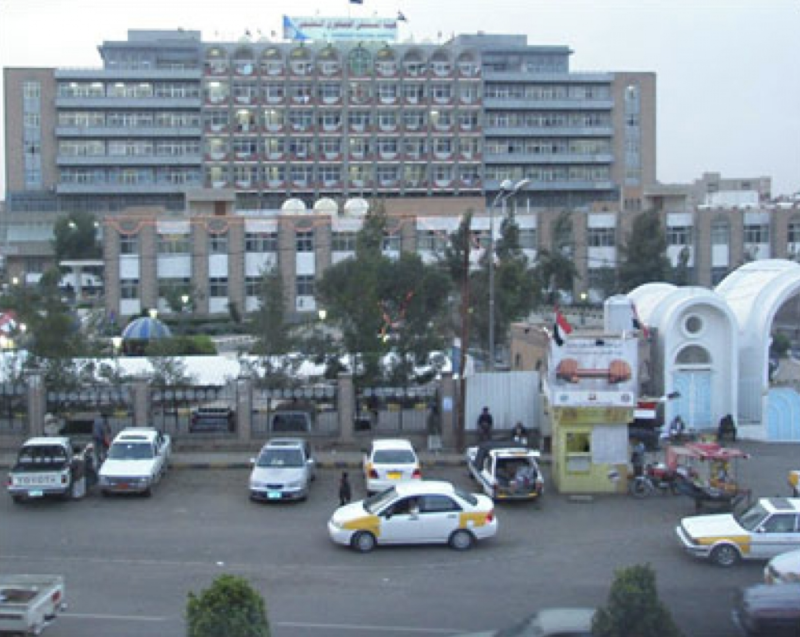Starving Hodeidah where death stalks streets, as food for millions sits in storage


A woman rummaging through garbage for scraps of food; a father pushing his skeletal teenage son in a wheelbarrow searching for help – a tragic snapshot of the daily scenes on Hodeidah’s streets of death.
Millions of Yemenis are on the brink of starvation, and yet enough food to feed 3.7 million of them for a month sits in storage.
Abdulrahman Al-Thorani, a humanitarian activist in the port city of Hodeidah, told Arab News: “Everywhere you look there is tragedy. So many are suffering, it’s hard not to be affected by it. People here are in desperate need of help, they have nothing and are dying every day as a result.”
Described by the UN as the world’s worst man-made humanitarian crisis, the situation for 80 percent of the country’s population is at crisis point.
British Foreign Secretary Jeremy Hunt warned on Sunday that a peace process in war-torn Yemen’s Hodeidah “could be dead within weeks” without more committed effort from both sides.
But time is already running out for many as famine and disease takes hold.
With a crumbling economy and infrastructure, millions are without basic necessities such as shelter, medical aid, food and clean water.
Al-Thorani said civilians were in urgent need of help. “People are dying because they don’t have anything to eat. No food, no water.”
They roam the streets scavenging for any food they can get, while others just stay at home and starve to death, Al-Thorani said.
“I found a woman rummaging through the garbage on the streets of Hodeidah trying to find food,” he said.
Hopes were raised when a temporary truce was signed in Sweden in December last year by the Houthis and the Yemeni government, which included the opening of a humanitarian corridor in Hodeidah. The agreement allowed for aid to be distributed in order to prevent widespread famine.
But almost three months after the deal was struck, food and vital supplies still sit in storage units while families continue to starve.
The UN said it had finally been able to access the Red Sea Mills - which has enough grain to feed 3.7 million people for a month - in Hodeidah after a half-year delay.
Dr. Elisabeth Kendall, an expert on Yemen affairs at Oxford University, referred to the Red Sea Mills situation as “a disgrace.”
“The sad reality is that it is not a simple question of countries donating more. It’s more a question of access,” she said.
An estimated 24 million people – close to 80 percent of the population – need assistance and protection in Yemen, the UN warned this month, with 14.3 million people classified as being in acute need.
Al-Thorani, who has been visiting several homes and unofficial displacement camps in Hodeidah this month, claimed that for every house he visited he found at least three cases of malnutrition or other diseases.
“Disease is widespread, and no one seems to care,” he added.
Al-Thorani said he visited one man who had tongue cancer, but he died shortly after because his family could not get treatment for him.
In another case, Al-Thorani found a father roaming the streets of the city while pushing his 14-year-old son in a wheelbarrow, looking for help. The teenager, who was severely malnourished, was unable to walk due to his condition. Al-Thorani said the boy was also suffering from kidney problems and eye infections.
Norah Borgany, a doctor who works in Al-Thawra hospital in Hodeidah, said although other hospitals in the province were operating, Al-Thawra was the only one that had the facilities to treat people. But fighting between the warring factions had prevented many from being able to reach the hospital for treatment.
“Roads to the hospital have to be cleared so that people in need can come to be treated,” Borgany said.
Reportedly 10,000 people have died since the start of the conflict in Yemen, but some believe the number is much higher. Data collected by Armed Conflict Location and Event Data Project (ACLED) - an independent group that studies conflicts – shows that at least 60,000 have been killed since 2016, while British charity Save the Children estimates that 85,000 children under the age of five have starved to death since 2015.
Analyst Kendall said that the only way to solve the humanitarian crisis was to end the war.
“Aid is only a band-aid on a gaping wound,” she said, adding that international pressure must remain strong on keeping the two main warring sides fixed on implementing the agreement reached in Stockholm.
However, shortly after the deal was signed, both sides reported violations of the cease-fire. The UN also said it doubted claims by the Houthis that they withdrew from Hodeidah, although the militia group has denied this.
AFP.

Sana’a – Medical and human rights circles were shaken by shocking reports confirming that renowned Yemeni orthopedic surgeon Dr. Majid…

Sana’a – Patients in the Houthi-controlled capital are facing worsening hardship as medical services at the Republican Hospital, the ci…

Sana’a —  Renowned Yemeni painter Adnan Juman has revealed a dire living crisis threatening his family’s stability, after re…